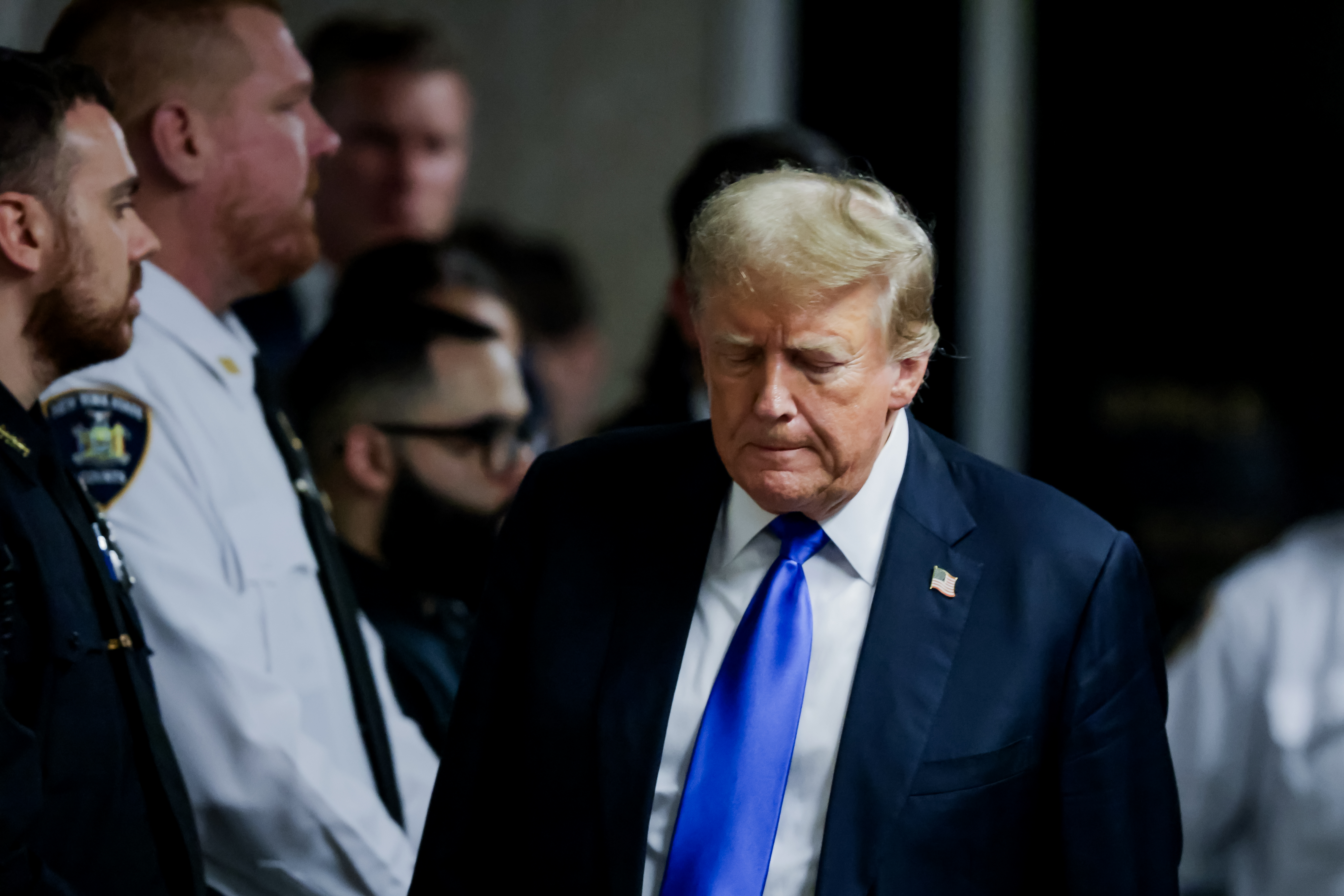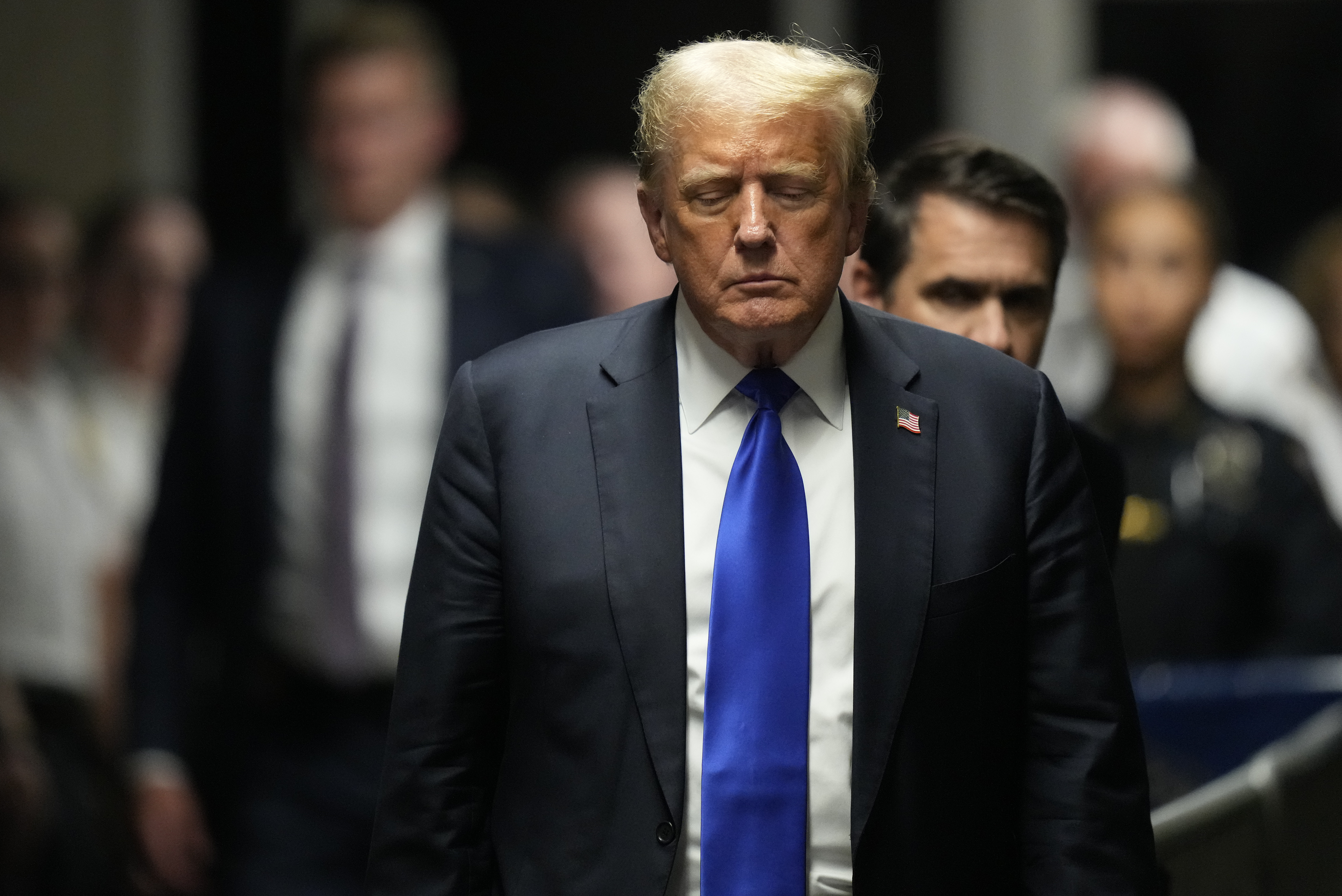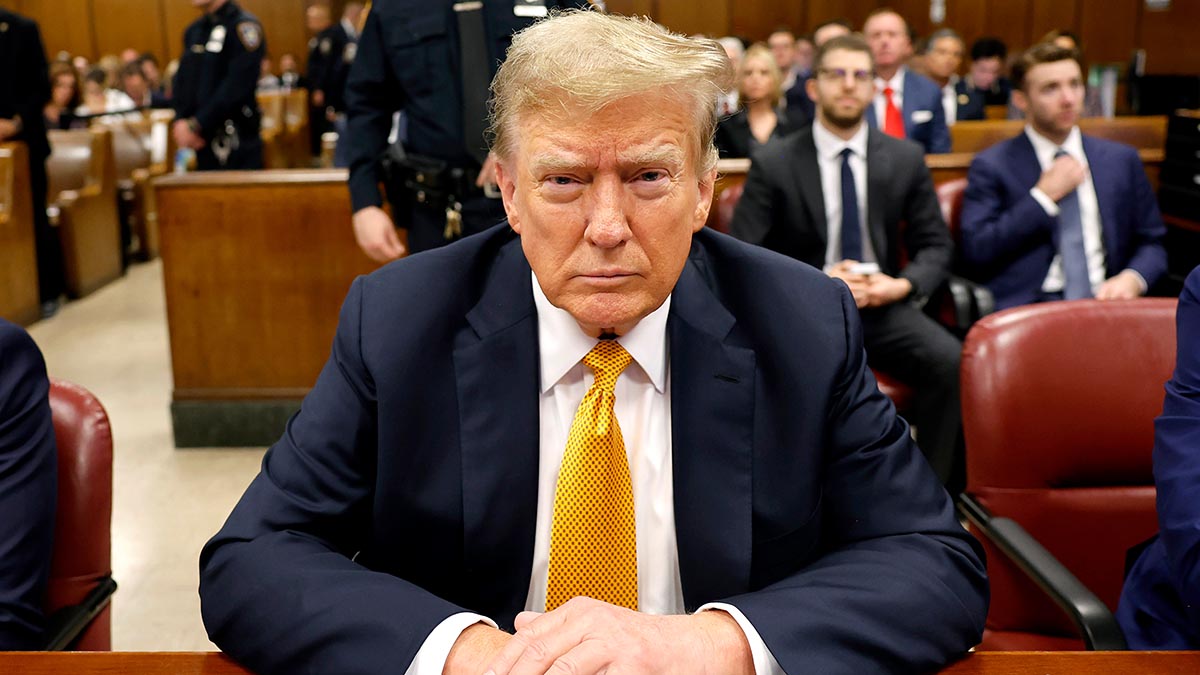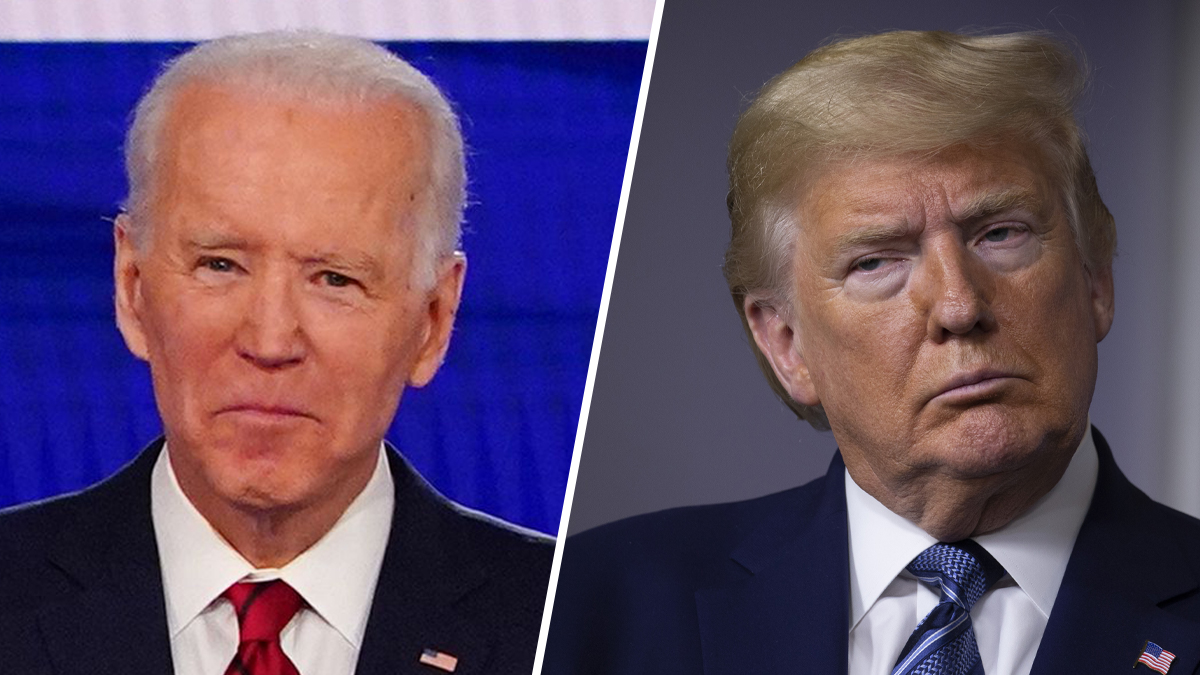A New York jury on Thursday found Donald Trump guilty on 34 felony counts of falsifying business records in an effort to conceal a hush money payment to adult film star Stormy Daniels during his 2016 presidential campaign.
The verdict is an unprecedented legal reckoning for the presumptive Republican presidential nominee ahead of the November election. Trump is expected to quickly appeal the verdict and could face an awkward dynamic as he seeks to return to the campaign trail.
Here’s what happens next:
When will Trump be sentenced?
The case now moves to the sentencing phase, a process largely controlled by Judge Juan Merchan.
Before adjourning Thursday afternoon Merchan set Trump’s sentencing for 10 a.m. ET on July 11 — just days before the Republican National Convention in Milwaukee. He ordered parties in the case to file motions by June 13.
Trump’s attorneys may try to push his sentencing date later — possibly even until after the Nov. 5 presidential election. But Merchan is unlikely to grant such a delay without a good reason, New York City defense lawyer Michael Bachner said.
The parties are expected to submit sentencing memos — in which each side presents arguments in favor of its preferred punishment — and other court filings, CNBC reported. Trump will also likely sit for an interview with a probation officer for a pre-sentence report, which would include sentencing recommendations.
Is he facing prison time?
Get a weekly recap of the latest San Francisco Bay Area housing news. Sign up for NBC Bay Area’s Housing Deconstructed newsletter.
The falsifying business records charges — which are Class E felonies, the least serious type of felonies under New York law — carry up to four years behind bars, though prosecutors have not said whether they intend to seek imprisonment, and it is not clear whether the judge would impose that punishment even if asked.
Trump’s potential sentence could also include a combination of fines and restitution, probation or other conditions.
Judge Merchan has broad discretion to determine the sentence, and he may consider all kinds of factors into his final decision.
Trump faces the threat of more serious prison time in the three other cases he’s facing, but those cases have gotten bogged down by appeals and other legal fights, so it remains unclear whether any of them will go to trial before the November election.
Avenues for appeal
Trump can challenge his conviction in a New York appellate court and possibly the state’s highest court. The appeal process would play out over many months, if not years, according to CNBC. So even if Trump's conviction is eventually overturned, it wouldn't be likely to happen before Election Day.
Trump’s lawyers may raise on appeal the judge’s ruling limiting the testimony of a potential defense expert witness. The defense wanted to call Bradley Smith, who served on the Federal Election Commission, to rebut the prosecution’s contention that the hush money payments amounted to campaign finance violations.
But the defense ended up not having him testify after the judge ruled he could give general background on the FEC but couldn’t interpret how federal campaign finance laws apply to the facts of Trump’s case or opine on whether Trump’s alleged actions violate those laws. There are often guardrails around expert testimony on legal matters, on the basis that it’s up to a judge — not an expert hired by one side or the other — to instruct jurors on applicable laws.
Trump will appeal to the New York Appellate Division’s First Judicial Department. If that court upholds the verdict, Trump then could appeal to the Court of Appeals, New York’s highest court.
The defense may also argue that jurors were improperly allowed to hear sometimes graphic testimony from Daniels about her alleged 2006 sexual encounter with Trump, which he denies ever happened. The defense unsuccessfully pushed for a mistrial over the tawdry details prosecutors elicited from Daniels. Defense lawyer Todd Blanche argued Daniels’ description of a power imbalance with the older, taller Trump, was a “dog whistle for rape,” irrelevant to the charges at hand, and “the kind of testimony that makes it impossible to come back from.”
Can Trump still run for president?
Trump’s legal battles will not prevent him from running for president.
The U.S. Constitution does not explicitly prohibit a presidential candidate from running for office while under indictment or even while serving time behind bars. Eligibility requirements for presidents state only that they must be at least 35 years old, be a natural-born citizen of the United States, and have been a resident of the country for at least 14 years.
It's not clear what impact the criminal conviction will have on his presidential campaign against President Joe Biden. The candidates are scheduled to face off in two presidential debates: one hosted by CNN in Atlanta on June 27, and another by ABC News on Sept. 10.
Trump has no campaign rallies on the calendar for now, though he’s expected to hold fundraisers next week.
Longtime venture capitalists David Sacks and Chamath Palihapitiya are scheduled to host a fundraiser for the former president on June 6 in San Francisco, according to an invite reviewed by CNBC.
Trump is also likely to have a fundraiser hosted in the Hamptons after the mid-July GOP nominating convention, a person familiar with the planning told CNBC.
And from now on, Trump will no longer be bound by the gag order issued by the court in the hush money trial that barred him from discussing witnesses, jurors and the judge's family members. He will be free to speak to the press, travel and continue his presidential campaign.
Can Trump vote?
Trump can still vote as long as he stays out of prison in New York state. While the former president is a Florida resident, a state notorious for restricting the voting rights of people with felony convictions, Florida defers to other states’ disenfranchisement rules for residents convicted of out-of-state felonies.
In Trump’s case, New York law only removes the right to vote for people convicted of felonies when they’re incarcerated. Once they’re out of prison, their rights are automatically restored, even if they’re on parole, per a 2021 law passed by the state’s Democratic legislature.
So as long as Trump isn’t sent to prison, he can vote for himself in Florida in November’s election.





